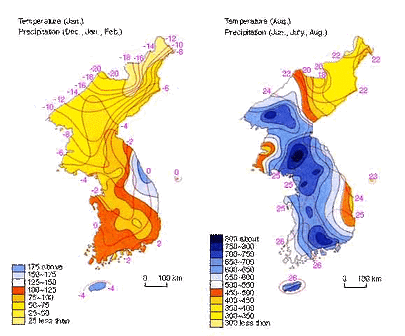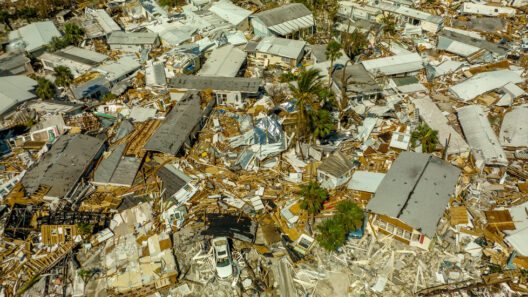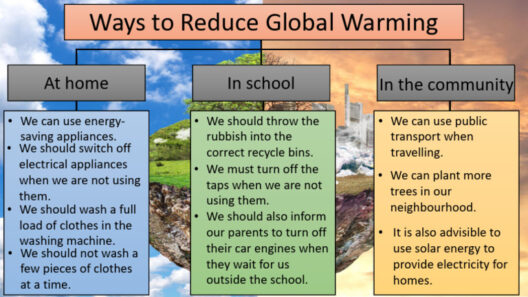The business world is undergoing a seismic shift as the ramifications of climate change become an undeniable reality. As global temperatures continue to climb, enterprises across all sectors are compelled to rethink their strategies and operational frameworks. This adaptation is not merely a response to evolving environmental conditions; it is an essential pivot that ensures survival amidst increasingly volatile circumstances. Companies that proactively reorient their business models are more likely to thrive in this new paradigm.
Climate change presents multifaceted challenges including erratic weather patterns, resource scarcity, and regulatory upheaval. Dealing with these complex issues requires an understanding that transcends traditional business practices. First and foremost, organizations must embrace sustainability—not as an ancillary consideration but as a core principle that informs every facet of their operations. From the supply chain to consumer engagement, a sustainability-focused approach can yield multifarious benefits.
One profound area of engagement is in supply chain innovation. Businesses are tasked with evaluating their supply chains to identify vulnerabilities related to climate-induced disruptions. For instance, companies reliant on agriculture must remain vigilant in the face of shifting weather patterns that can decimate crops. By investing in resilient agricultural practices and diversifying their sources, organizations can mitigate risks. Furthermore, the integration of advanced technologies such as artificial intelligence can illuminate areas for improvement within logistics, paving the way for agile responses to disruptions.
Corporate social responsibility (CSR) initiatives have evolved as well. Stakeholders today expect companies to align their mission with environmental stewardship. Investment in carbon-neutral projects, for instance, not only enhances a company’s public image but also contributes to long-term viability. Engaging customers through transparent sustainability efforts can engender loyalty, thus creating a virtuous cycle where both the corporation and the environment benefit.
Moreover, as regulatory landscapes tighten in response to the climate crisis, companies must stay ahead of compliance requirements. Governments worldwide are implementing stricter guidelines aimed at mitigating climate impact. This includes emissions trading systems and carbon taxes that will affect profitability. Businesses that adopt proactive measures can turn potential liabilities into opportunities, positioning themselves as market leaders in the green economy.
At the financial nexus lies the meteoric rise of green finance. An increasing influx of investment capital aimed at environmentally sustainable projects signifies a shift in investor priorities. Firms that are adept in articulating their sustainability narratives can attract this capital more readily. Environmental, Social, and Governance (ESG) metrics are now a critical component for investment analyses. Therefore, integrating ESG factors into business strategy not only fulfills ethical obligations but also secures indispensable financial backing.
Rebranding efforts that reflect a commitment to environmental accountability can yield significant competitive advantages. Companies that can demonstrate tangible actions towards sustainability are more trusted by consumers who are becoming increasingly discerning about the brands they support. This trust translates into purchasing decisions and brand allegiance, crucial commodities in a crowded marketplace.
However, the transition to sustainable practices is riddled with challenges. Resistance to change is prevalent, as shifts in business models often require a reevaluation of existing power dynamics and operational frameworks. Employees may be skeptical of changes, and leadership must work diligently to foster a culture of innovation and adaptation. Successful change management hinges on creating a narrative that resonates with employees’ values, thus catalyzing collective buy-in and involvement.
Furthermore, industries that rely heavily on fossil fuels or unsustainable practices face existential threats. The call for a just transition suggests that such sectors must embrace innovation while simultaneously addressing the socioeconomic implications of these transformations. This includes upskilling workers in renewable energy technologies to ensure employment in the new economy. Enterprises must engage with dissenting voices, including labor unions, to navigate this complex interplay sustainably.
Education plays a pivotal role in shaping the next generation of business leaders, and as such, sustainability curricula must be integrated into higher education frameworks. Young professionals equipped with an understanding of environmental issues and sustainable practices will be invaluable in steering their organizations towards greener futures. Collaborative initiatives between businesses and educational institutions can further enhance this dialogue, fostering a culture of continuous learning and adaptation.
Cross-sector collaboration is imperative as well. Individual businesses cannot combat the climate crisis in isolation. Public-private partnerships can be incredibly effective in addressing systemic issues at scale. By working together through shared resources and collective goals, sectors can yield solutions that are greater than the sum of their parts. Initiatives focusing on local resilience, renewable energy, and sustainable infrastructure can serve as blueprints for comprehensive action against climate change.
In conclusion, the interplay between business and a warming planet is complex and continuously evolving. Adaptation to climate change necessitates a fundamental shift in the way organizations conceptualize their roles within broader societal frameworks. Collaboration, innovation, and foresight will delineate the path forward. The business world stands at a pivotal juncture, one where embracing sustainability is not merely advantageous but essential for continued relevance and success in a warming world.







